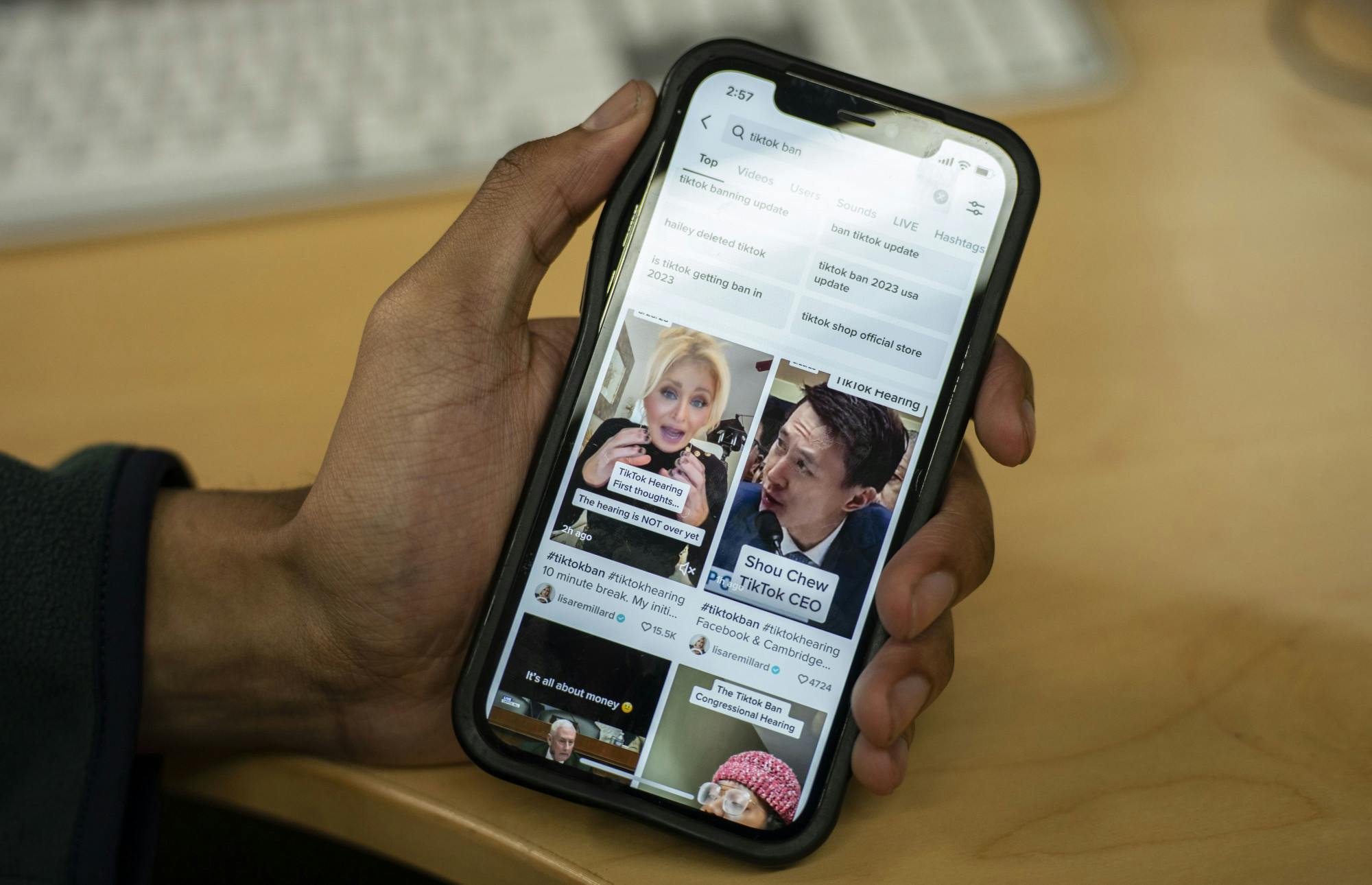A Congressional hearing about TikTok took place Thursday, following a series of concerns over the popular social media platform's data privacy and security practices.
Held by the Senate Judiciary Committee, the five hour-long hearing saw testimony from TikTok CEO Shou Chew, as well as representatives from other tech companies and experts in the field of online security.
The hearing came amidst growing concerns over the potential threat posed by foreign-owned tech companies, particularly those with ties to China. TikTok, owned by Chinese company ByteDance, has been accused of collecting and sharing user data with the Chinese government, a charge the company has denied.
TikTok has been seeking approval from the Committee on Foreign Investment in the United States , or CFIUS, to continue operating in the U.S. under its ownership. The plan, named Project Texas, outlines how the social media company will prevent the Chinese Communist Party, or CCP, from accessing U.S. user data or manipulating content recommendations. It also includes oversight measures by CFIUS-approved auditors and third-party monitors.
However, the plan has yet to receive approval, and the Biden administration has expressed a desire for TikTok’s Chinese ownership to either sell the app or face a possible ban. China has stated it would firmly oppose any forced sale of the app.
The White House has supported a bipartisan Senate bill, called the American Data Privacy Protection Act, that would allocate more power to the administration to deal with platforms such as TikTok, including a potential ban.
During the hearing, lawmakers questioned Chew about TikTok’s policies and impacts on mental and physical health, age restrictions, illicit and inappropriate content, human rights violations and national security.
“TikTok surveils us all and the Chinese Community Party is able to use this as a tool to manipulate America as a whole,” Committee Chair Cathy McMorris Rodgers told Chew in her opening remarks. “Your platform should be banned. I expect today, you will say anything to avoid this outcome.”
In an exchange with California Democratic Representative Anna Eshoo, Chew discussed TikTok’s ongoing efforts to protect U.S. user data.
“I have seen no evidence that the Chinese government has access to that data,” Chew said. “They have never asked us, we have not provided it.”
Chew said the company’s commitment is to move their data into the United States, to be stored on American soil by an American company overseen by American personnel. This means the risk would be similar to any government that approaches an American company for data, he said.
"I find that actually preposterous," Eshoo said.
Maryland Democratic Rep. John Sarbane said research has shown that the more time middle and high schoolers spend on social media, the more likely they are to experience depression and anxiety.
“This is particularly troubling since apparently 16% of American teenagers report that they use TikTok almost constantly,” Sarbane said. “That’s, I think, about five million teenagers that in this country, are on TikTok all the time.”
Currently, TikTok is facing lawsuits over deadly trends and “challenges” that have risen in popularity on the app. Dean and Michelle Nasca, the parents of a teen who committed suicide allegedly because of unsolicited violent content on TikTok, appeared at the hearing.
Texas Republican Rep. Dan Crenshaw questioned Chew about user data collection.
“Many employees of ByteDance must be card carrying members of the CCP, right?” Crenshaw said. “And if the CCP says, ‘Hey ByteDance, you’re going to do what we say and you can’t tell anyone about it,' because by law … they have to do it, that’s our concern.”
Chew told committee members that many of the risks being highlighted are hypothetical and theoretical. He said he has not seen evidence to supplement these claims and eagerly awaits discussions to address the concerns being raised.
In a written statement to the House Energy and Commerce Committee, Chew stated "unequivocally" that "ByteDance is not an agent of China."
A coalition of civil liberties, digital rights and anti-censorship organizations, including PEN America and the Center for Democracy and Technology, wrote a joint letter to Congress saying that a TikTok ban would infringe on First Amendment rights.
Support student media!
Please consider donating to The State News and help fund the future of journalism.
“There are more than 150 million Americans who love our platform,” Chew said. “And we know we have a responsibility to protect them.”
Discussion
Share and discuss “Congress questions TikTok CEO over national security concerns, eyes potential ban” on social media.







